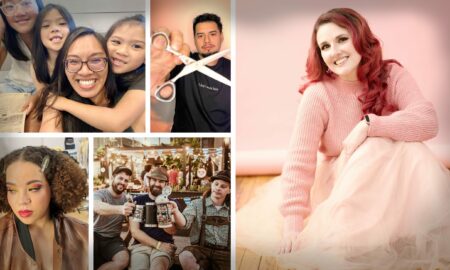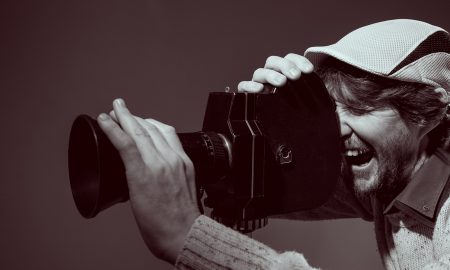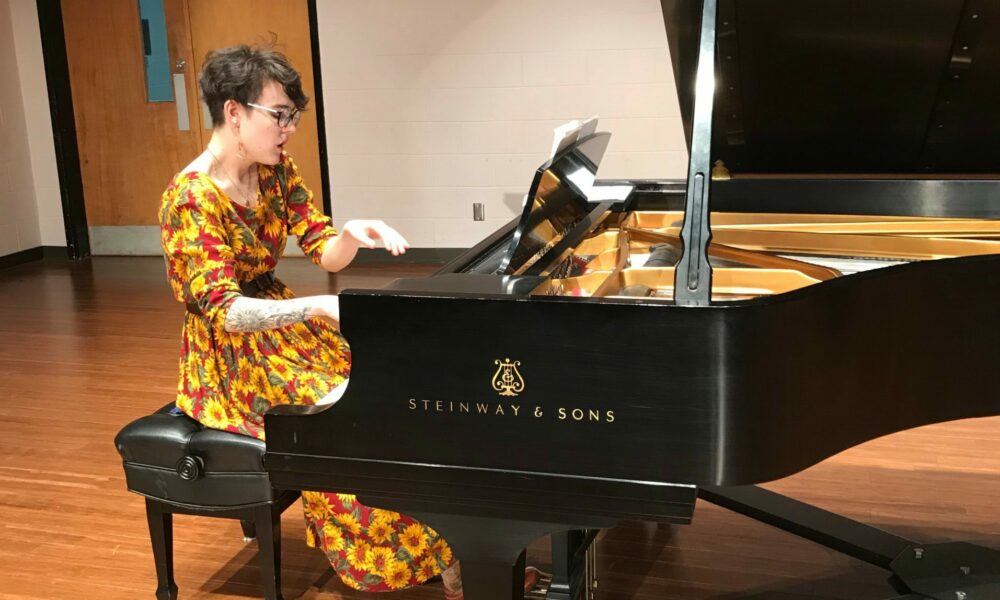

Today we’d like to introduce you to Ahafia Jurkiewicz-Miles.
Hi Ahafia, please kick things off for us with an introduction to yourself and your story.
I’ve been a pianist since I was five, and I started acting in the Heart of America Shakespeare Festival’s summer camps when I was around 8. These things set me up for the adult I am today – I had so much time to explore the world, myself, and my identity through art. My parents specifically homeschooled me and my brother to provide us with an arts education. I am eternally grateful to have grown up with much time to practice and play. We were also part of the LEARN homeschool collective in KC, which introduced me to so many different families and ways of living, which was such a gift for young queer me – I got to build a vocabulary of queer identity so much younger than many of my friends who went to public or private school. And homeschooling allowed me how to learn and enjoy it, which gave me an advantage when I started college at UCM in Warrensburg.
I truly loved my four years there. It was a small enough music department that I got to push the boundaries of what a Bachelor’s in Piano Performance meant to me. I could participate in theater, play in pit orchestras, write my own one-person/one-piano show for my senior recital, and even be paid to music direct the theater department’s spring musical in my senior year. It was an incredible opportunity and boost for me. I also met the inimitable Angie Benson while at UCM, and she gave me my first professional musical pit orchestra job in the summer of 2017, playing Keys 2 for Priscilla Queen of the Desert at the Unicorn Theatre. She opened my eyes to the joy of pit work and music directing, and I can never thank her enough.
After I graduated, between the network of theater friends I had made in college and the people I knew from childhood and KC theater work, I could jump right into MDing and playing in pits in the Kansas City area. It was incredible. I could still fulfill my love of playing classical music by accompanying vocal students at UMKC. I love my jobs – I love making music with people for the love of music.
Let’s dig deeper into the story – has it been an easy path, and if not, what challenges have you overcome?
Oh lordy, absolutely not. I had a couple of considerable setbacks in my musical life. The first one was when I was 17 and my piano teacher, Margie Cameron-Jarrett, whom I’d known since I was born and studied with since I was five, was diagnosed and swiftly died of cancer. I suddenly had no idea how to approach the piano or if I even wanted to. I still vividly remember playing at her funeral, feeling the universe kind of open out in front of me in a way I’d never experienced before, and then having to sit back down and get through the rest of the service. Music was different after that. I was fortunate that my mom pushed me to find another teacher and was extra lucky that we stumbled across Kari Johnson – she whipped my ass into shape for college auditions. There is no way I could have done it without her.
When I was 18, I realized I was trans and came out to my family and community. Honestly, it went very well; my mom and I had some stuff to work through, but we did it, and we’re closer and better friends today because of it. Much of my dysphoria was around my voice, so I started testosterone in the summer of 2015, just before I went off to college. The thing about testosterone is that when it’s in your system, you breathe and gain muscle mass. It was crazy. I had never been able to build back and shoulder muscle that way. Suddenly, I could practice for hours without fatigue – it was fantastic since it was my first semester, and I had tons to work on. But then I realized I didn’t want to be on T for the rest of my life – I had gotten the result I wanted (lowered voice), and the rest of the changes that were happening weren’t bringing me gender euphoria. So, I stopped my injections. But I kept practicing just the way I had been. Losing the muscle mass that T had brought me.
Flashing forward to the following spring, I’m sitting in my music theory class, writing notes, and realizing my forearms are on fire. I rushed to my piano teacher’s office, and Dr. Mia Kim, in her ever-straightforward, practical tone, told me that it sounded like carpal tunnel. I had to stop playing for around 4-5 months. I did exercises, physical therapy, you name it. It was easily one of the most challenging periods of my life – everything about my definition of self was called into question. I had always been a musician, a pianist, and suddenly I couldn’t be. It was rough.
Thankfully, all the PT paid off, and I could return to playing. We also had a new teacher join us who altered my entire perspective on life. Dr. Albert Kim brought me an entirely new approach to piano technique that saved my arms back then and now. He is one of the wisest, most beautiful, and most artistic people in the world, and has had such an impact on my life – and he allowed me to play piano again.
As you know, we’re big fans of you and your work. For our readers who might need to become more familiar, what can you tell them about what you do?
At the core of my being, I love being a collaborative artist and musician. Accompanying and music directing are incredibly fulfilling because I can encourage and facilitate creativity and work as a team to make something beautiful. My greatest hope is to be known as someone who shows up prepared, believes in the art they are creating, and then proceeds to create with love and respect for all the people around me. The older I get, the more I desire all my art to be communal in spirit.
That being said, I have also done a fair amount of individual, self-driven work, which I am very proud of. I am known for creating theatrical art that discusses the intersections of music and queerness, often music and transness specifically. Music and theater were so essential to my self-reckoning growing up; without it, I don’t believe I would have figured out my queer and trans identity as early as I did. Music was such a genderless space for me that I felt I could be anything, and doing a bunch of youth Shakespeare, where we were cast indiscriminately in terms of gender, allowed me to experiment with so many characters and identities. So when it came time for me to decide on the contents of my senior recital (base requirements: 60 minutes of piano performance), I knew I wanted to find a way to express the history of queerness and queer expression in music, to show that I am one in a long line of artists who felt this way.
I ended up creating a 90-minute, one-person/one-piano performance that featured compositions by queer composers from the 1800s to the present day, including pieces by my friend Dominic who grew up in KC with me. I did a ton of research, spent hundreds of hours practicing, wrote a script, collaborated with music technologists, and choreographed dance – it was crazy. Looking back on it now, I can’t believe how much I did. I was so proud of it. I took an abbreviated version of this show to KC Fringe in 2019.
Since then, I’ve gotten to pursue this same line of creation a few times in Kansas City – for the InterUrban ArtHouse, I made a short film using diary excerpts and a piece by Ned Rorem, famed gay diarist and composer of the mid and late 1900s. Then, in 2022-23, even wilder, I was approached by Kansas City Public Theatre, who commissioned me to write a show about Billy Tipton, a jazz performer who grew up partially in Kansas City and was discovered to be trans after his death.
Writing that show was such an honor. Getting to dive deeply into his life and try to find a way to communicate to people just what a grounded, real-life human he was, to get past all the hysteria and hype after his death – was one of my life’s most meaningful pursuits. Nothing brought me closer to him than transcribing some of his few recorded performances for the show. Feeling his personality in my hands made it much easier to embody him. The Billy Tipton project was one of the most special to me because of what a fantastic team I had – no longer was it just me and a piano telling this story. I had the two members of my incredible trio – Grant Klinksick on upright bass and T.J. Warren on the drums – the ridiculously talented Vanessa Davis playing every character in Billy’s life opposite me, and the best creative team I could have asked for; Amanda Arany, Elizabeth Bettendorf-Bowman, Nathan Bowman, Jessica Michael, Micah Thompson, and very specially to me, my brother Kestrel Jurkiewicz-Miles.
What were you like growing up?
A little weirdo 10000%. I’ve been thinking a lot about what I would be like today if I had gone to regular school, and the answer ranges from less fulfilled to no longer on this earth. I loved to learn; I was loud and expressive, stimmed with my hands, and unabashedly loved the uncool things I was very into. My interests hopped everywhere: mycology, mythology, Ancient Egypt, geology, outer space, orchestral music. I loved being outside- my brother Kestrel and I were outdoors for about half of the day. It helped that we did a lot of classes at the Discovery Center and Lakeside Nature Center. I didn’t grow up afraid of the world and nature and loved reading. I often had 5 books going simultaneously, all stacked up on each other so I could swap between them easily. And it was never hard to get me to sit down and practice. My father is a jazz bass player, and my mother is a piano teacher who studied music therapy – they were thrilled that they didn’t have to fight with me about pursuing music. I started playing the violin of my own accord as well. I was proud of being a weirdo, which continues into the current Ahafia.
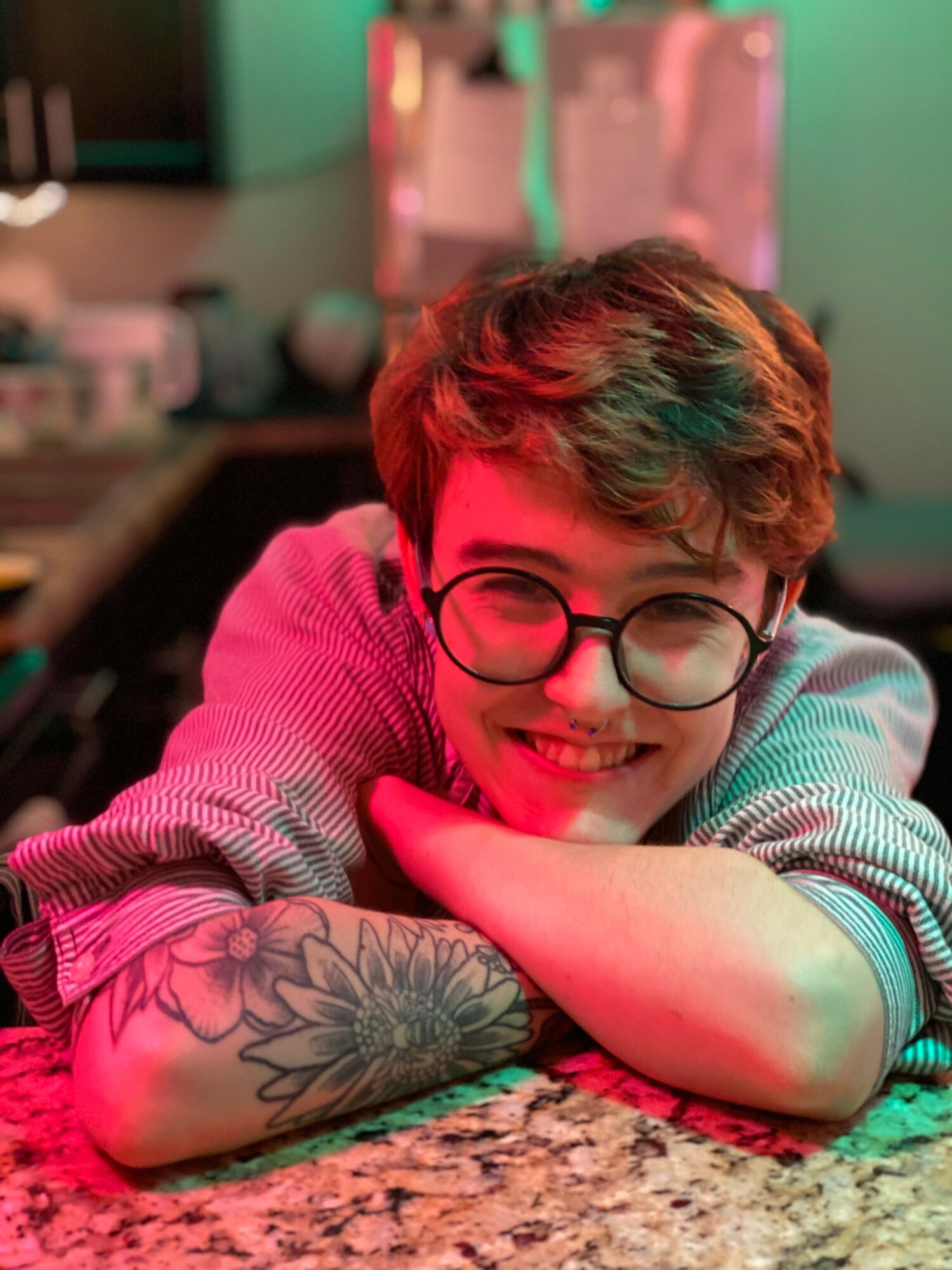
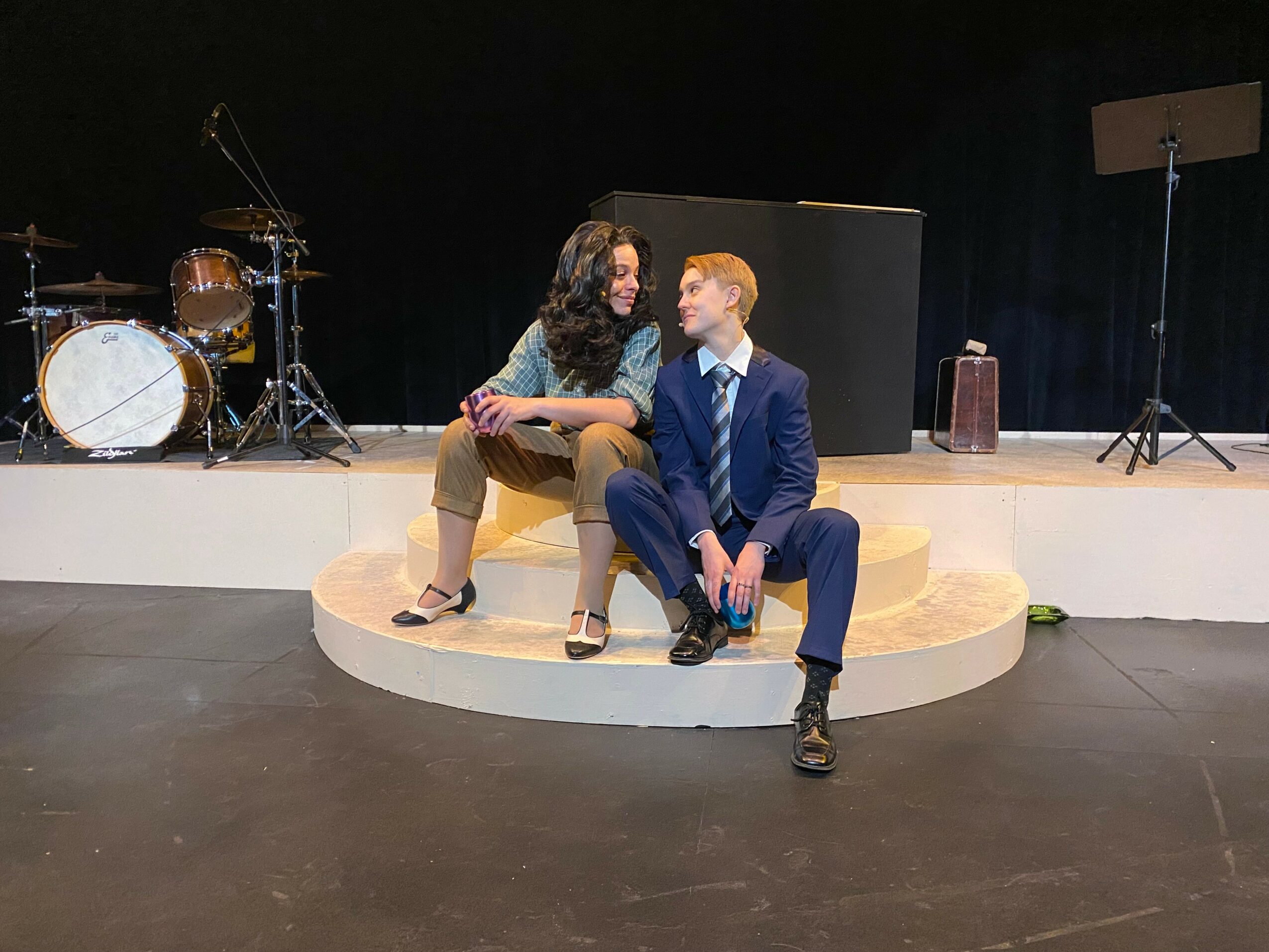
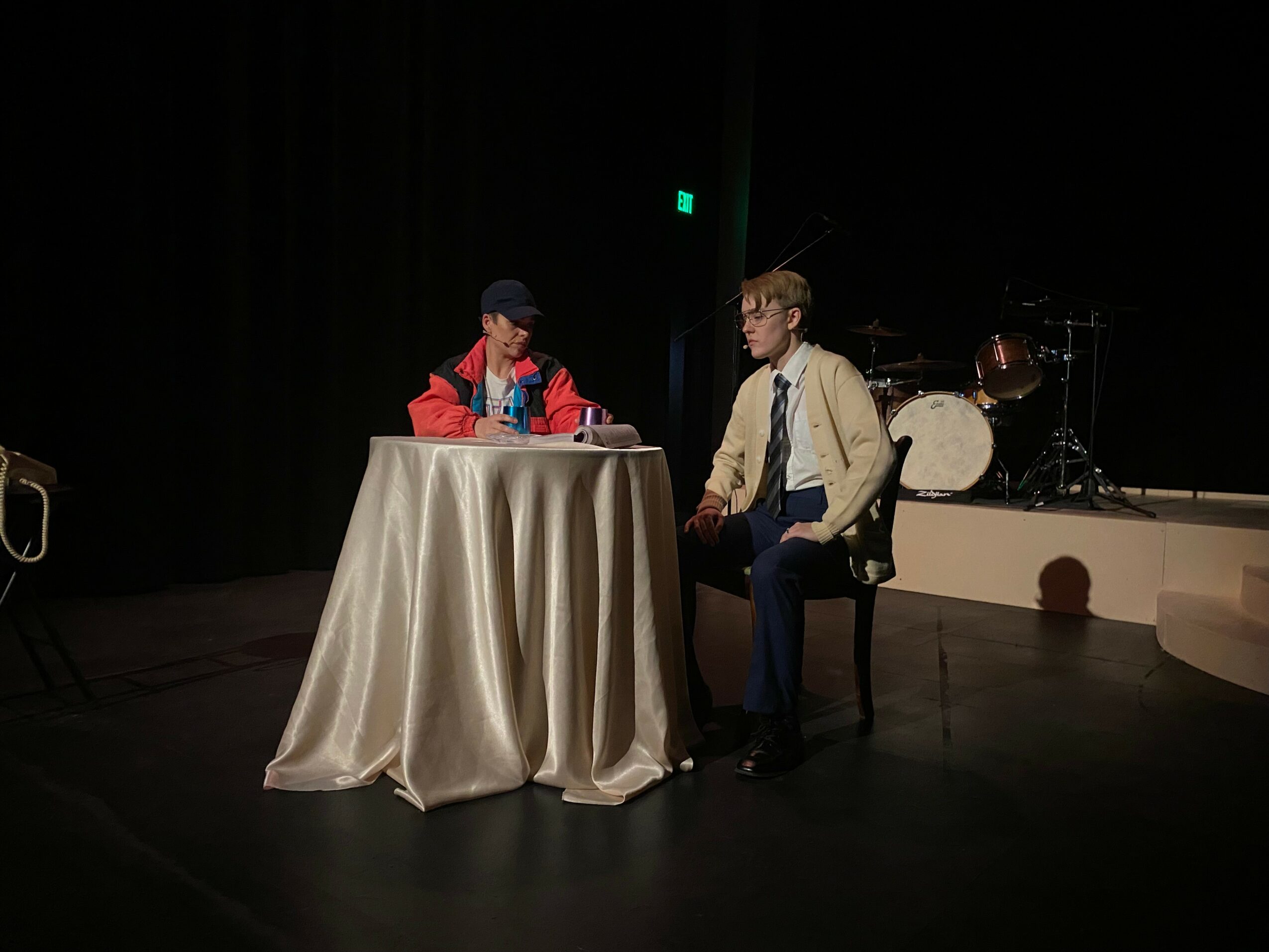
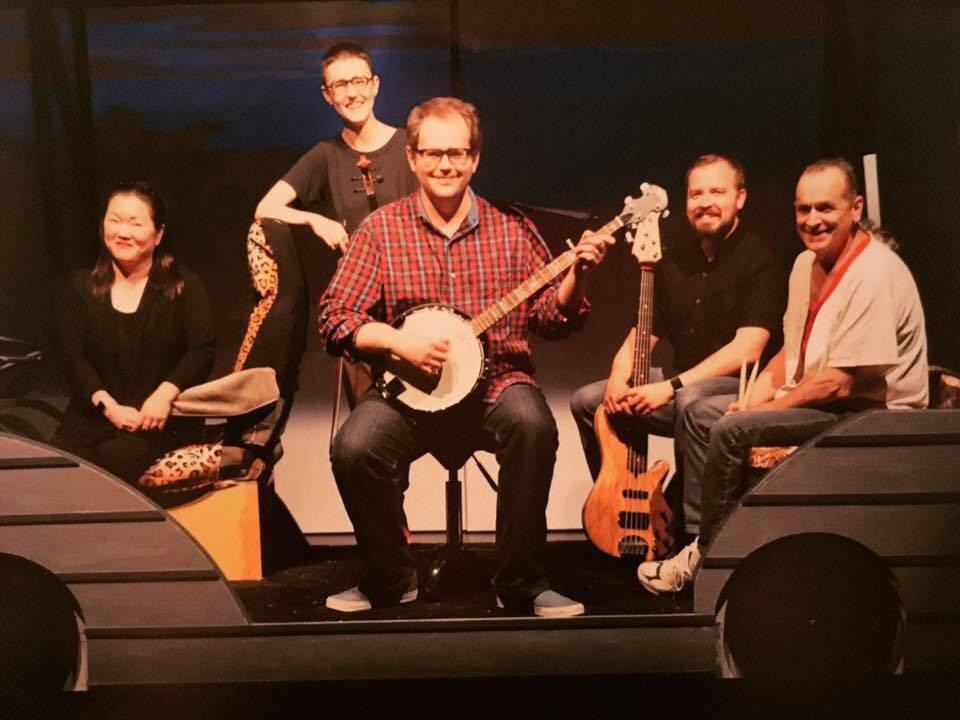
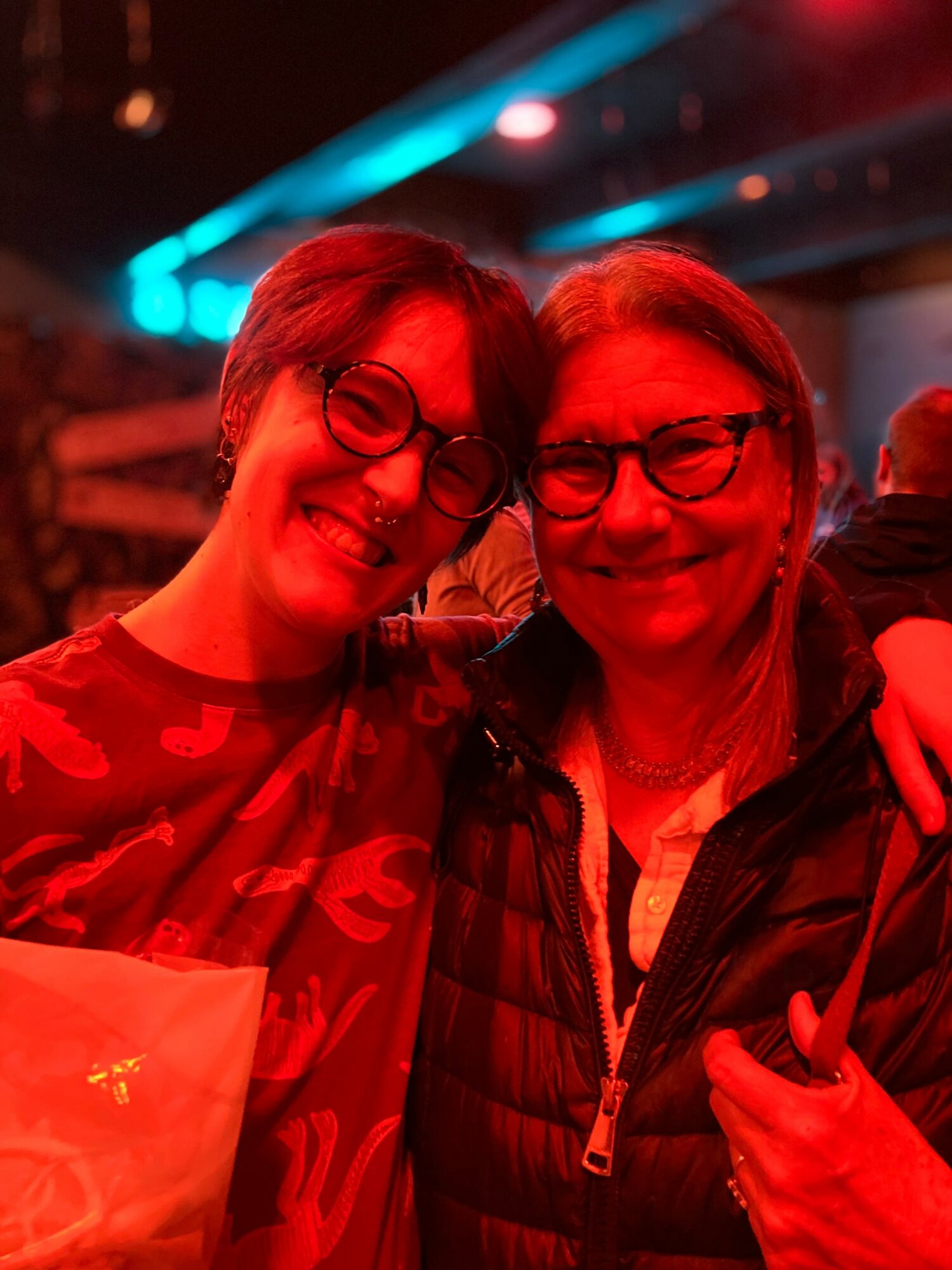
Image Credits
Spencer Thut, Kestrel Jurkiewicz-Miles, The Unicorn Theatre

